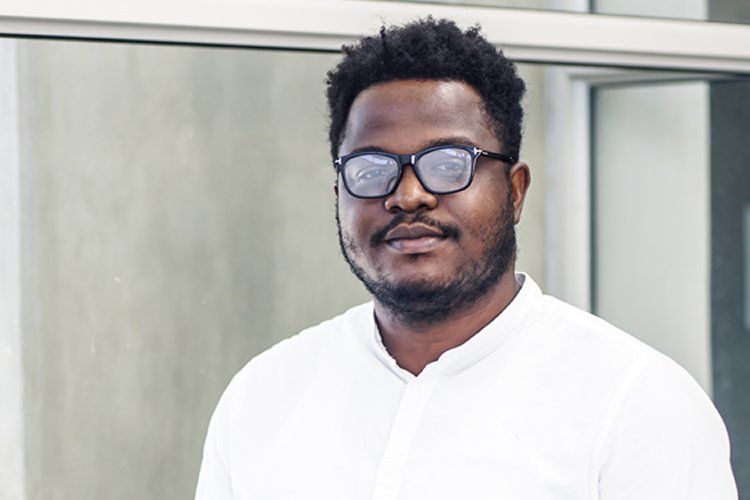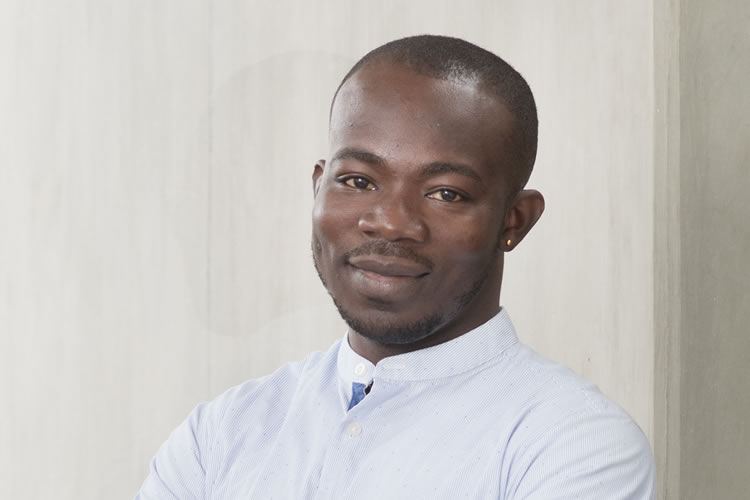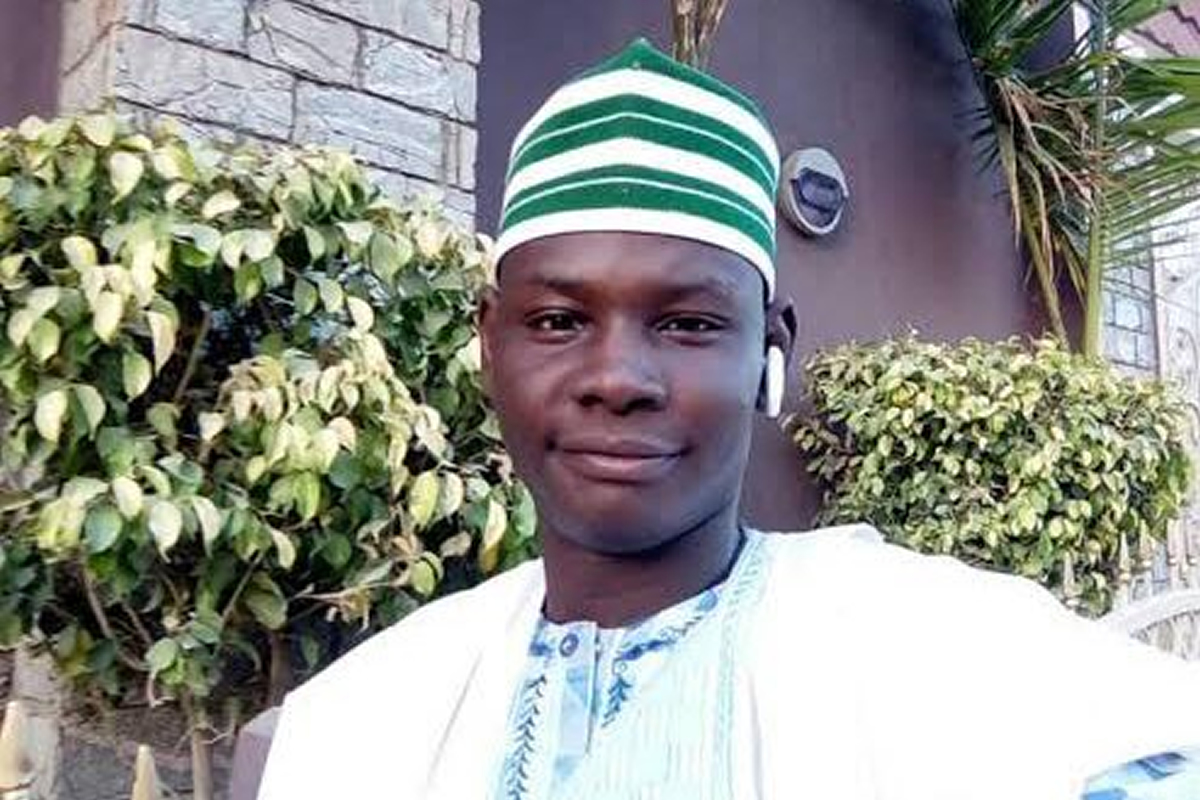The Centre for Human Rights, Faculty of Law, University of Pretoria, has with alarm taken note of the precarious position and imminent risk of irreparable harm to the life of Nigerian singer Yahaya Sharif Aminu. The Centre on 9 September 2020 lodged a request to the African Commission on Human and Peoples’ Rights (African Commission) to take immediate action, in the form of directing an urgent appeal to the Head of State, or any other appropriate form.
The African Commission is the human rights watchdog of the African Union (AU). Its mandate is to supervise states compliance with AU human rights standards. Foremost among these is the African Charter on Human and Peoples’ Rights (African Charter). The Commission was established under the Charter. Nigeria is not only a party to the Charter; it has also adopted legislation to give domestic effect to the African Charter.
Death sentence for singing
Yahaya Sharif is a 22-year old Muslim singer. He has very little formal education and is indigent. A Sharia Court in Kano State on 10 August 2020 sentenced him to death by hanging after convicting him of the offence of insulting the Islamic religion, as provided for under the Kano State Sharia Penal Code of 2000. Yahaya Sharif’s offence is apparently based on the lyrics of a song, posted on Whatsapp. The Court interpreted the lyrics of a song that praised an imam as ‘elevating him above the Prophet Muhammed’. An appeal has to be instituted within 30 days.
An appeal is being instituted on Sharif’s behalf. While the Centre expresses its sincere hope that the appeal would succeed, there are no guarantees.
(See https://thenationonlineng.net/death-sentence-kano-judiciary-submits-case-details-to-falana).
While the appeal is being considered, Sharif remains in detention. According to available information, he is not allowed access to a lawyer. He also remains at risk of losing his life, since it is not implausible that in the prevailing political climate the Governor may at any stage sign the warrant of execution. The risk is exacerbated by the information in the public domain that the Governor has indicated his unequivocal support for the execution of the sentence.
Urgent appeal
The Centre therefore on 9 September 2020 requested the African Commission to direct an urgent appeal under its Rules of Procedure to the Head of State of Nigeria, based on the available information, urging the state to ensure that Shafir is allowed unhindered visits by lawyers and family; that he is treated with dignity; and that all possible measures are taken to ensure that the sentence is not implemented while the appeal is being heard. The Commission has made it clear that the death penalty – if not yet abolished – is used for only the most serious crimes, which are understood to be ‘crimes involving intentional killing’ (General Comment No.3, para 24). The imposition of a death sentence for the offence that Aminu committed cleary is not one of the ‘most serious crimes’ for which the death penalty may exceptionally be imposed. In addition, because the trial has not met the standards of a fair trial, as required under article 7 of the African Charter, the subsequent application of the death penalty will be against international human rights law. The imposition of the death penalty on Shafir can thus under no circumstances be in line with the African Charter. It violates the right to life; it is a disproportionate sentence, and it will be following violations of his fair trial rights.
In the shadow of Ken Saro Wiwa’s 1995 execution
The execution of Ken Saro Wiwa and other members of the ‘Ogoni Nine’ in 1995 casts its shadow over these circumstances. Saro Wiwa was sentenced to death in a patently politically orchestrated trial. A case was instituted before the African Commission to challenge the Nigerian state’s failure to provide a fair domestic process. While the case was still pending, the Commission issued provisional measures to direct the State to refrain from executing Saro Wiwa until the case before the Commission had been finalised. Despite this appeal, Nigeria executed Saro Wiwa on 11 November 1995. See International Pen and Others. on Behalf of Saro Wiwa v Nigeria, AHRLR 212 (ACHPR 1998); Communications 137/94, 139/94, 154/96 and 161/97 paras 114 and 115.
Supremacy of the Constitution
The execution of the ‘Ogoni Nine’, including Saro Wiwa, took place during the years of authoritarianism under the military ruler Sani Abacha. Nigeria has since then embraced constitutional democracy. It, therefore, is the Centre’s call the Commission should, beyond addressing the immediate and urgent need to preserve life and limb, also use its protective and promotional mandate to engage the state of Nigeria to ensure that the supremacy of its Federal Constitution – which guarantees freedom of expression, fair trial rights -- is respected throughout the territory of Nigeria. Imposing and implementing the death penalty for expression undeniably violate the African Charter. The conviction and sentence in the individual case should be overturned, but the underlying criminal statute should also be amended so as to be compatible with Nigeria’s constitutional and international human rights law obligations.
For more information, please contact:

Researcher: Expression, Information and Digital Rights Unit
Tel: +27 (0) 12 420 4397
Fax: +27 (0) 86 580 5743
oluwatomiwa.ilori@up.ac.za

Manager: Litigation and Implementation Unit
Tel: +27 (0) 12 420 3151
Fax: +27 (0) 86 580 5743
michael.nyarko@up.ac.za


